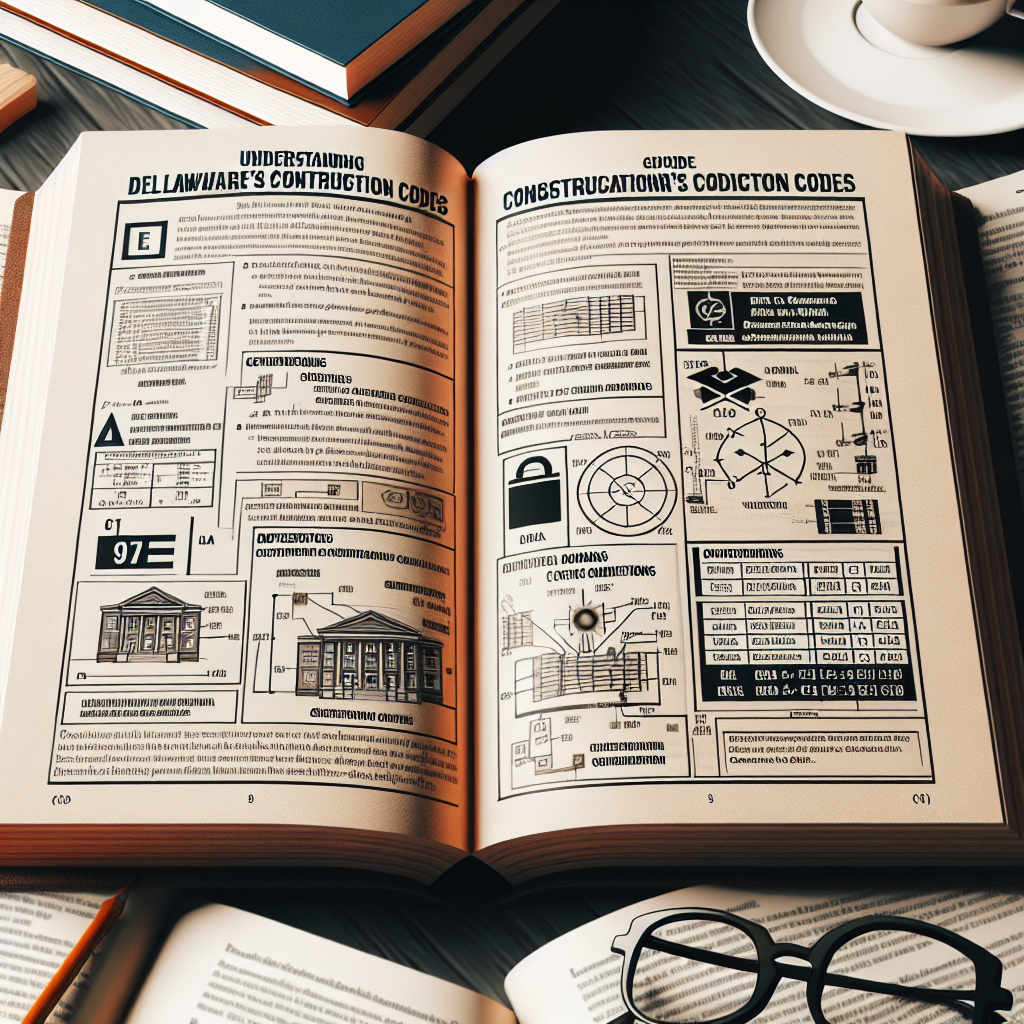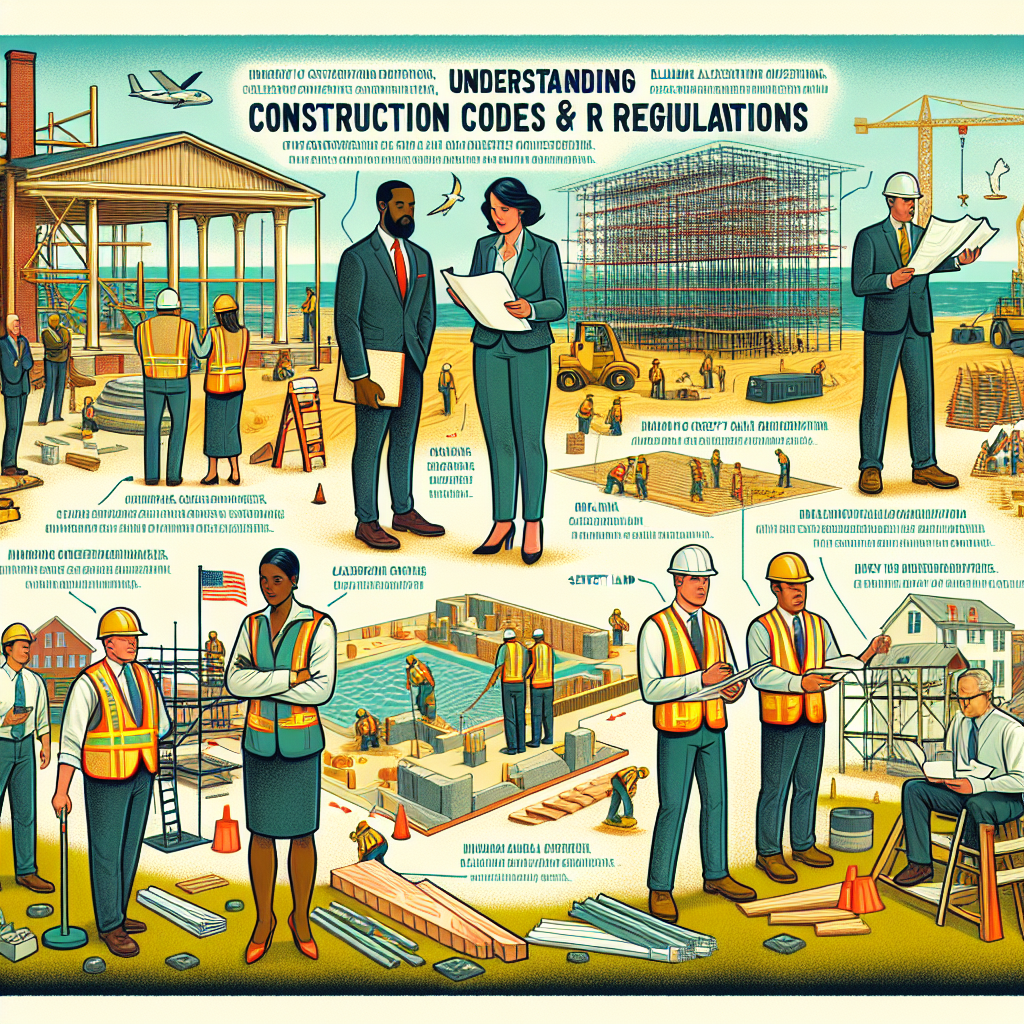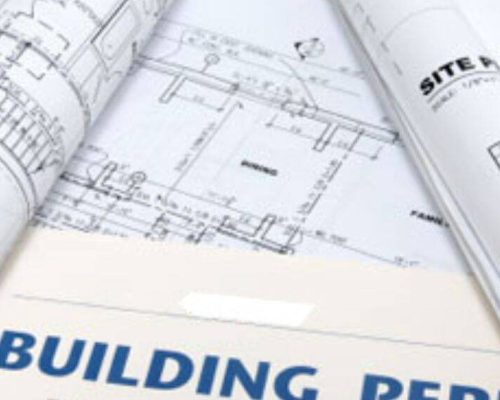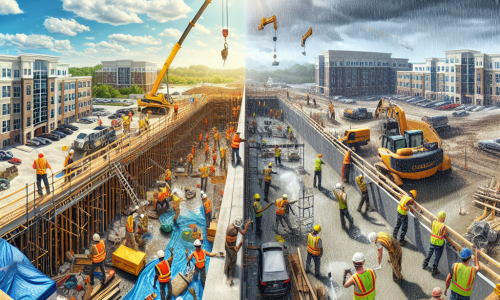The Importance of Familiarizing Yourself with Delaware’s Construction Codes and Regulations
When it comes to construction projects in Delaware, there are a variety of codes and regulations that must be followed. These codes and regulations are in place to ensure the safety and integrity of buildings and structures, as well as to protect the health and well-being of the public. As a contractor or builder, it is crucial to familiarize yourself with these codes and regulations to avoid any potential legal issues and to ensure that your project is completed successfully.
One of the main reasons why it is important to understand Delaware’s construction codes and regulations is to ensure compliance with the law. The state of Delaware has adopted the International Building Code (IBC) as its primary code for construction projects. This code outlines the minimum requirements for building design, construction, and maintenance. It covers everything from structural integrity to fire safety, plumbing, and electrical systems. By familiarizing yourself with the IBC, you can ensure that your project meets all the necessary standards and avoid any potential legal consequences.
In addition to the IBC, there are also other codes and regulations that must be followed in Delaware. These include the International Residential Code (IRC) for residential construction, the International Energy Conservation Code (IECC) for energy efficiency, and the International Fire Code (IFC) for fire safety. Each of these codes has its own set of requirements and standards that must be met. It is essential to understand and comply with these codes to ensure the safety and quality of your construction project.
Another reason why it is crucial to familiarize yourself with Delaware’s construction codes and regulations is to ensure the safety of workers and the public. Construction sites can be hazardous, and it is the responsibility of the contractor or builder to ensure that all safety measures are in place. The IBC and other codes have specific requirements for things like fall protection, scaffolding, and electrical safety. By following these codes, you can create a safe working environment for your workers and prevent any accidents or injuries.
Moreover, understanding Delaware’s construction codes and regulations can also help you save time and money. By following the codes and regulations, you can avoid costly mistakes and delays in your project. For example, if your project does not meet the necessary standards, it may fail inspections, resulting in additional time and money spent on corrections. By familiarizing yourself with the codes, you can ensure that your project is completed efficiently and within budget.
Additionally, being knowledgeable about Delaware’s construction codes and regulations can also help you maintain a good reputation as a contractor or builder. Clients want to work with professionals who are well-informed and follow all the necessary rules and regulations. By demonstrating your understanding of the codes, you can build trust with your clients and establish yourself as a reliable and responsible contractor.
In conclusion, understanding Delaware’s construction codes and regulations is crucial for any contractor or builder. It not only ensures compliance with the law but also promotes safety, saves time and money, and helps maintain a good reputation. As a professional in the construction industry, it is your responsibility to stay updated on any changes or updates to the codes and regulations. By doing so, you can ensure the success of your projects and contribute to the overall safety and well-being of the community.
Navigating Delaware’s Construction Codes and Regulations: Tips and Resources

Delaware is a state known for its rich history and beautiful landscapes. With a growing population and economy, the construction industry in Delaware is thriving. However, with this growth comes the need for strict regulations and codes to ensure the safety and integrity of buildings. As a contractor or homeowner, it is important to understand and comply with Delaware’s construction codes and regulations. In this article, we will explore the basics of these codes and regulations, as well as provide tips and resources for navigating them.
First and foremost, it is important to understand that Delaware’s construction codes and regulations are in place to protect the public’s health, safety, and welfare. These codes are constantly evolving and are enforced by the Delaware State Fire Prevention Commission and the Office of the State Fire Marshal. The codes cover a wide range of areas, including building design, materials, and construction methods.
One of the most important codes to be aware of is the Delaware State Fire Prevention Code. This code sets the standards for fire safety in all buildings, including residential, commercial, and industrial structures. It covers everything from fire alarms and sprinkler systems to emergency exits and fire-resistant materials. It is crucial for contractors and homeowners to comply with this code to ensure the safety of occupants in the event of a fire.
Another important code to be familiar with is the Delaware Building Code. This code sets the standards for building design and construction, including structural requirements, plumbing, electrical, and mechanical systems. It also covers accessibility for individuals with disabilities. It is important to note that the Delaware Building Code is based on the International Building Code, with some modifications specific to the state.
In addition to these codes, there are also regulations in place for specific types of construction projects. For example, the Delaware Residential Code applies to all one- and two-family dwellings, while the Delaware Energy Conservation Code sets standards for energy efficiency in buildings. It is important for contractors and homeowners to research and understand the specific codes and regulations that apply to their project.
Navigating Delaware’s construction codes and regulations can seem overwhelming, but there are resources available to help. The Delaware State Fire Prevention Commission and the Office of the State Fire Marshal have a wealth of information on their websites, including code books, forms, and frequently asked questions. They also offer training and educational programs for contractors and homeowners to stay up-to-date on the latest codes and regulations.
Another valuable resource is the Delaware Contractors Association (DCA). This organization represents the interests of the construction industry in Delaware and provides resources and support for contractors. They offer training programs, networking opportunities, and access to industry experts who can provide guidance on navigating the codes and regulations.
It is also important to note that local municipalities in Delaware may have their own building codes and regulations in addition to the state codes. It is crucial to research and comply with these local codes as well. The DCA and the Delaware State Fire Prevention Commission can provide information on local codes and regulations.
In conclusion, understanding and complying with Delaware’s construction codes and regulations is essential for the safety and success of any construction project. It is important to stay informed and up-to-date on the codes and regulations, as they are constantly evolving. Utilizing resources such as the Delaware State Fire Prevention Commission, the Office of the State Fire Marshal, and the Delaware Contractors Association can help contractors and homeowners navigate these codes and regulations with ease. By following these codes and regulations, we can ensure the safety and integrity of buildings in the state of Delaware.
Common Misconceptions about Delaware’s Construction Codes and Regulations Debunked
Delaware’s construction codes and regulations are an essential aspect of the state’s building industry. They ensure that buildings are constructed safely and meet certain standards for structural integrity, fire safety, and accessibility. However, there are many misconceptions surrounding these codes and regulations that can lead to confusion and misunderstandings. In this article, we will debunk some of the common misconceptions about Delaware’s construction codes and regulations.
One of the most common misconceptions is that Delaware does not have strict construction codes and regulations. This is simply not true. In fact, Delaware has some of the most stringent building codes in the country. The state follows the International Building Code (IBC) and the International Residential Code (IRC), which are widely recognized as the most comprehensive and up-to-date building codes in the United States. These codes are regularly updated to ensure that buildings are constructed to the highest standards of safety and quality.
Another misconception is that Delaware’s construction codes and regulations are only applicable to new construction projects. This is not the case. These codes and regulations also apply to renovations, additions, and alterations to existing buildings. Any changes made to a building must comply with the current codes and regulations, regardless of the age of the building. This ensures that all buildings in Delaware are safe and up to code, regardless of when they were built.
Some people also believe that Delaware’s construction codes and regulations are too expensive and time-consuming to comply with. While it is true that following these codes and regulations may require additional time and resources, they are in place for a reason. The safety and well-being of the occupants of a building should always be a top priority. By adhering to these codes and regulations, builders and contractors can ensure that their projects are safe and meet the necessary standards. In the long run, this can save time and money by avoiding costly repairs or legal issues.
Another misconception is that Delaware’s construction codes and regulations are one-size-fits-all. In reality, these codes and regulations are tailored to the specific needs and conditions of the state. Delaware’s climate, geography, and other factors are taken into consideration when developing these codes. For example, buildings in coastal areas may have different requirements for hurricane resistance compared to buildings in other parts of the state. This ensures that buildings are constructed to withstand the unique challenges of Delaware’s environment.
There is also a misconception that Delaware’s construction codes and regulations are not enforced. This is simply not true. The state has a dedicated team of building inspectors who are responsible for ensuring that all construction projects comply with the codes and regulations. These inspectors conduct regular inspections throughout the construction process to ensure that everything is being done according to the codes. If any violations are found, they must be corrected before the project can continue.
Finally, some people believe that Delaware’s construction codes and regulations are too complex and difficult to understand. While these codes and regulations may seem overwhelming at first, they are designed to be clear and concise. In fact, the state has a website dedicated to providing information and resources on the codes and regulations. Additionally, builders and contractors can consult with code officials if they have any questions or need clarification on certain requirements.
In conclusion, Delaware’s construction codes and regulations are an essential aspect of the state’s building industry. They are in place to ensure the safety and well-being of the occupants of buildings and to maintain the quality and integrity of construction projects. By debunking these common misconceptions, we hope to provide a better understanding of the importance and effectiveness of Delaware’s construction codes and regulations.










